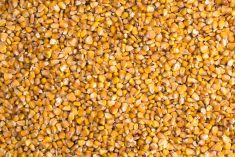Chicago | Reuters — U.S. lean hog futures fell on Wednesday on expectations for abundant pork supplies as meat processors work their way through pigs that backed up on farms when slaughterhouses shut due to the coronavirus pandemic.
Traders expect meat packers to start eating into the backlog of hogs within the next two weeks or so, said Rich Nelson, chief strategist for broker Allendale.
Meatpacking plants have resumed operations — many at reduced capacities — after closing in April and May due to outbreaks among workers.
Read Also

Alberta crop conditions improve: report
Varied precipitation and warm temperatures were generally beneficial for crop development across Alberta during the week ended July 8, according to the latest provincial crop report released July 11.
Processors on Wednesday slaughtered 450,000 hogs, up five per cent from a week earlier but down about seven per cent from a year ago, according to the U.S. Department of Agriculture.
“For the next two to six weeks, the trade is just concerned about supplies in front of us,” Nelson said.
Chicago Mercantile Exchange July lean hog futures, the most actively traded contract, slumped 0.175 cent, to 52.8 cents/lb. August futures dropped 0.975 cent, to 55.825 cents.
In the beef market, cattle futures are stuck in a trading range, a trader said.
CME August live cattle retreated 1.3 cents, to 96.5 cents, after setting a one-week high on Tuesday. August feeder cattle futures closed 1.575 cents lower at 132.675 cents/lb.
A Brazilian court ordered JBS to shut the production line of a beef plant in the state of Rondônia pending implementation of measures to stem a coronavirus outbreak at the facility, which employs 900 people.
The slaughtering of cattle in Brazil over the first quarter slowed to the lowest level since 2012 for the period, reaching 7.25 million head, the government’s statistics agency IBGE said.
IBGE did not provide a reason for the fall, but in March some local companies reduced the number of people on duty at beef plants to stem the spread of the virus.
— Tom Polansek reports on agriculture and ag commodities for Reuters from Chicago.















